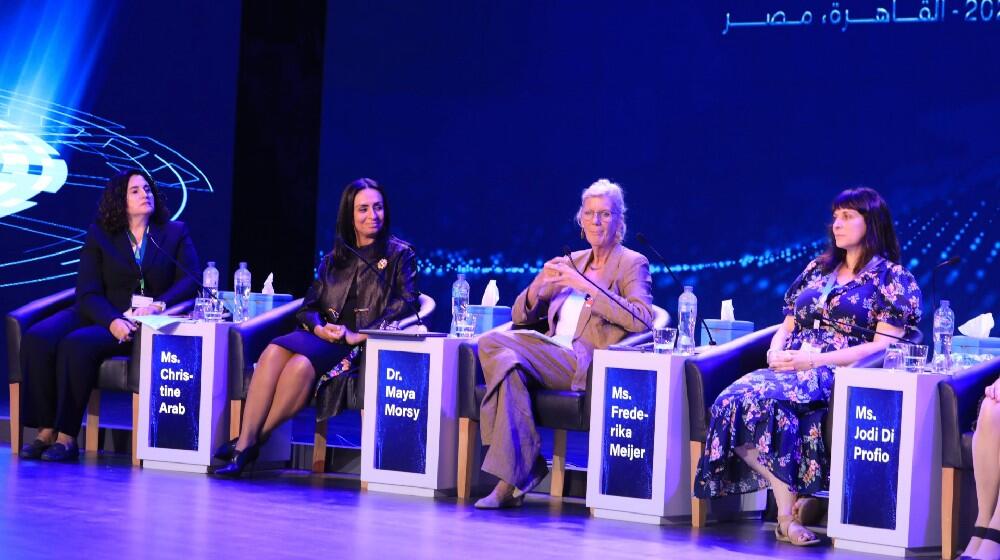UNFPA Representative in Egypt Frederika Meijer highlighted that promoting positive social norms is key in shaping behavior and combatting violence and harmful practices against women and girls.
In a session titled, “Women’s empowerment and gender equality for the advancement of a healthy population,” held on the second day of the congress on September 6, Meijer presented the lifecycle approach which considers the different stages of a woman’s life starting at birth and childhood, going through adolescence and reproductive age.
Starting at birth, Meijer said, we must ensure that every every child birth is safe and that women have the knowledge to make informed choices about the method of delivery.
Meijer underlined that adolescence is a significant period where girls are impacted by social norms and that investment in girls at that age will determine the trajectory of the rest of their life. Positive social norms, she said, will protect girls from harmful practices such as Female Genital Mutilation (FGM) and child marriage, and will help them stay in school.
At reproductive age, women need to have the knowledge to make informed choices and decisions about their reproductive health and their families, Meijer said. They need the skills and the access to the labor market and most of all need to live free from violence and discrimination, she added.
The session was moderated by Christine Arab, UN Women Representative in Egypt, and included Dr Maya Morsi, President of the National Council for Women.


